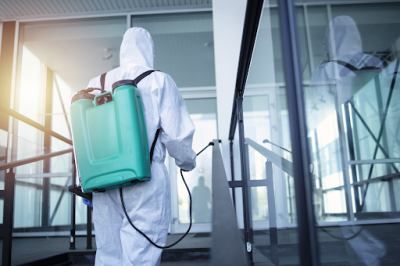
Food safety is a crucial aspect of running a successful restaurant. Ensuring that the food served to customers is safe to eat can prevent illnesses, protect your reputation, and even save lives. One of the most effective ways to maintain high food safety standards is through regular inspections. In this article, we will discuss the importance of regular food safety inspection services for restaurants.
1. Preventing Foodborne Illnesses
Foodborne illnesses are a serious threat to public health and can have devastating consequences for both the customers and the restaurant. Regular food safety inspections can help prevent these illnesses by identifying and addressing potential hazards in the kitchen. Some of the common causes of foodborne illnesses that can be detected during inspections include:
Common causes of foodborne illnesses:
- Cross-contamination of raw and cooked foods
- Improper food storage temperature
- Poor personal hygiene practices
- Contaminated food preparation surfaces
By conducting regular inspections, restaurant owners can ensure that these risks are minimized, protecting both their customers and their business.
2. Protecting Your Reputation
A single foodborne illness outbreak can severely damage the reputation of a restaurant. News of food poisoning incidents spreads quickly, thanks to social media and online review platforms. Regular food safety inspections can help prevent such incidents from occurring in the first place. By demonstrating a commitment to food safety and hygiene, restaurants can build trust with their customers and enhance their reputation in the community.
Benefits of protecting your reputation:
- Positive reviews and word-of-mouth recommendations
- Increased customer loyalty and repeat business
- Attracting new customers through positive feedback
Investing in food safety inspections is not just a legal requirement; it is also a smart business decision that can help restaurants thrive in a competitive industry.
3. Compliance with Regulations
Health and safety regulations for food establishments are in place to protect the public from foodborne illnesses and ensure that food is prepared and served safely. Regular food safety inspections are essential for ensuring that restaurants comply with these regulations. Failure to meet these standards can result in fines, closure orders, and even legal action against the restaurant owner.
Key regulations for restaurants:
- Proper food storage and handling practices
- Regular cleaning and sanitization of kitchen equipment
- Employee training on food safety procedures
- Health checks for food handlers
By conducting regular inspections, restaurant owners can identify any areas of non-compliance and take corrective action before they face any penalties.
4. Improving Overall Food Quality
Food safety inspections not only focus on preventing foodborne illnesses but also on improving the overall quality of the food served in a restaurant. By maintaining high standards of hygiene and safety in the kitchen, restaurants can ensure that the food they serve is fresh, delicious, and safe to eat.
Ways food safety inspections improve food quality:
- Ensuring proper food handling to maintain freshness
- Preventing contamination to preserve flavor
- Regular cleaning and maintenance of kitchen equipment for optimal performance
- Training staff on proper cooking techniques for consistent quality
Ultimately, investing in food safety inspections can lead to higher customer satisfaction and help restaurants stand out in a competitive market.
5. Employee Training and Development
Regular food safety inspections provide an opportunity for restaurant owners to assess the knowledge and skills of their staff members when it comes to food safety practices.
By identifying areas where additional training is needed, restaurant owners can invest in the professional development of their employees and ensure that they have the necessary expertise to maintain high food safety standards.
Benefits of employee training:
- Improved compliance with food safety regulations
- Reduced risk of foodborne illnesses due to human error
- Enhanced teamwork and communication in the kitchen
- Increased job satisfaction and employee retention
By investing in the training and development of their staff, restaurant owners can create a culture of food safety awareness and excellence within their establishment.
Conclusion
Regular food safety inspections are essential for maintaining high standards of hygiene, quality, and safety in restaurants. By preventing foodborne illnesses, protecting the reputation of the business, ensuring compliance with regulations, improving food quality, and investing in employee training, restaurants can create a safe and welcoming environment for their customers.
Ultimately, food safety inspections are not just about meeting legal requirements but are also a key component of running a successful and sustainable restaurant business.